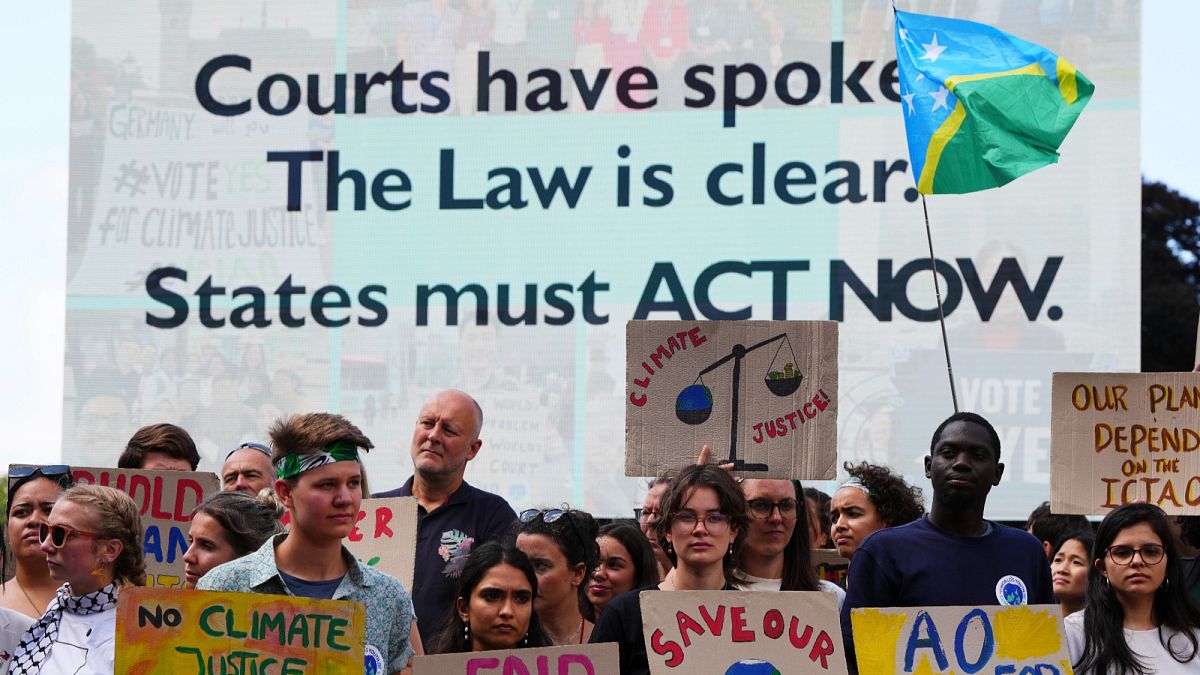

In a world where every corner impacts another, this week has been marked by significant decisions and initiatives across various domains, reflecting our intertwined global challenges and collaborations. From landmark rulings in climate obligations to humanitarian appeals and breakthroughs in international trade agreements, the global community continues to navigate its diverse interests with a mindful focus on cooperation and sustainable progress.
In an encouraging advancement for global climate responsibility, the United Nations’ top court has delivered an advisory opinion that could potentially redefine international climate regulations. This non-binding opinion may pave the way for future significant shifts in how countries are expected to address and manage climate-related duties. While the decision does not legally oblige nations, it serves as a vital reference point that could inspire legislative changes worldwide, emphasizing the growing recognition of the importance of environmentally conscious governance. This development has been welcomed by environmental advocates who see it as a stepping stone towards more substantial commitments in global climate policies.
On a different note, the dynamics between global economic powers continue to evolve. As the EU-China summit draws near, a positive outlook is being cast on potential business cooperation. A high-profile Chinese envoy recently highlighted the prospective benefits of closer collaboration, particularly focusing on investment opportunities within Europe and the importance of research and intellectual property cooperation. While some remain cautiously optimistic about the summit’s outcomes, this engagement underscores a mutual recognition of the benefits of economic synergy and technological collaboration between two of the world’s largest economies.
Meanwhile, in the humanitarian sphere, over a hundred aid agencies, including renowned organizations like Doctors Without Borders, have voiced an urgent plea regarding the situation in Gaza. In a letter addressed to international communities and the Israeli government, these organizations have expressed profound concern about the humanitarian aid blockade that is exacerbating a severe food crisis in the region. The statement from the organizations acknowledges the dire conditions that residents are facing and stresses the immediate need to allow life-saving aid into the area. This call for action is a critical reminder of the importance of empathy and cooperation in addressing human crises across the globe.
Additionally, in what is being hailed as a landmark moment for global trade, India’s Prime Minister Narendra Modi is visiting the United Kingdom to finalize a significant free trade agreement between the two nations. This deal is regarded as a pivotal development for both countries, offering considerable economic advantages such as a boost to Britain’s car and whisky industries alongside visa concessions for India. This agreement represents Britain’s most substantial trade commitment since Brexit, signifying a strategic economic partnership aimed at bolstering growth and mutual prosperity amidst ongoing global trade tensions.
In summary, these developments reflect an era where global interconnectivity seeks to harmonize environmental, economic, and humanitarian goals. As countries navigate these complex landscapes, collaboration and dialogue remain key instruments in forging paths toward sustainable and harmonious progress. The global community stands at a juncture where shared challenges can foster unified solutions, catalyzing future progress and development across multiple fronts.
Source: {link}
